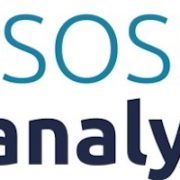Roland Omoresemi is CEO of US based Tezza Business Solutions, a software testing company with a strong pan-African presence. Tezza has a strong presence in East Africa (Kenya, Uganda and Tanzania) where it provides testing services for a client base that includes public and private sector players. In this interaction with IT Edge News, Omoresemi speaks on plans to consolidate on its Nigerian presence through a recent in-country partnership with another Nigerian ICT company and why software testing is imperative to keep businesses and government operations going.
Tezza Solutions has presence in East Africa and is already setting up in West Africa through Nigeria, what exactly is your service portfolio?
Yes, we’ve been in East Africa since 2009 and we now have offices and presence in Kenya, Uganda, and Tanzania. Our Service Offerings cuts across all areas of Quality Assurance of which Software Testing is prominent. Our “Go-To Market Strategy” is built on the following 5 major Service offerings: Consultancy in all areas of Quality Assurance & Testing. One of the key services of this offering is our Test Process Improvement Assessment. Through our assessments we are able to determine the Quality Assurance maturity levels of our clients thereby allowing us to help clients create short and long term roadmaps for how to address quality issues within their software development life cycles. Other services include: Test Center of Excellence (TCoE) set-up; Test Strategy Definition; Test Process Consulting;
Test Automation Consulting; Performance Test Consulting; and Tool/Product Assessment & Evaluation, Implementation, Administration and Management.
Why do companies and even government institutions need software testing services?
Quality sells and intentional investments in defect prevention result in even larger savings in quality-related failures. Quality ensures fulfillment and customer satisfaction. Quality guarantees brand and ensures customer loyalty. Software Testing ensures improved quality, reduced implementation costs and faster time to market especially when it is structured and intended. Organizations that strongly weigh and consider the risks posed to their brand, operational productivity, loss of revenue, even to the lives of their consumers would strongly focus on quality management.In economies where there are consumer advocacy groups, the penalties for poor quality in software applications can be severe. In Nigeria today, if consumers have a voice, would our approach to software quality be different? And without a common voice for consumers, could organizations whether in the private or public sector, pursue a higher level of excellence in developing applications that could be sold anywhere in the world and not just in Nigeria?According to a study conducted by the U.S. National Institute of Standards and Technology regarding the impact of software failures, software errors cost the American economy $59.5 billion annually. (National Institute of Standards and Technology, 2002)
If you have the opportunity to advise the Nigerian government as software testing company, what areas will you look at to drive efficiency in the system?
I would advise the government to first start out by developing the necessary capabilities within NITDA. NITDA must be in the forefront of whatever policies or processes it advocates with regards to Software Quality Assurance and Testing. This can easily be achieved by setting up a Software Quality Assurance and Testing department within its organization through which it can begin to develop capabilities that are eventually rolled out to and/or implemented within all ongoing IT projects within the government in addition to being leveraged by organizations within the private sector. This is also a structure and approach that is similar to what the U.S. Department of Commerce does through its National Institute of Standards and Technology (NIST). It is also similar to what the Federal Drugs Administration (FDA) does with regards to the guiding principles for Software Validation. The FDA provides guidance on how certain provisions of the medical device Quality System regulation apply to software and the agency’s approach to evaluating a software validation system. Within FDA is a team of skilled software testers who actually try out and implement the guiding principles they advocate.
In the U.S., NIST is one of the nation’s oldest physical science laboratories. According to NIST’s website “Congress established the agency to remove a major handicap to U.S. industrial competitiveness at the time—a second-rate measurement infrastructure that lagged behind the capabilities of England, Germany, and other economic rivals.” Within NIST is a Software and Systems Division (SSD) who’s mission is to “work with industry, academia and other government agencies to accelerate the development and adoption of correct, reliable, testable software, leading to increased trust and confidence in deployed software; promulgate methods to develop better standards and testing tools for today’s software infrastructures and tomorrow’s next-generation software systems; advance the state of the art of software testing by developing scientifically rigorous, breakthrough techniques to automatically generate tests that are cheaper to develop and more comprehensive; lead efforts for conformance testing, especially at the early stage of standards development; develop integrated test environments to coalesce systems; facilitates the transfer of these activities and technologies into national infrastructures and commercial sectors.”
Do you think institutions like NITDA are really doing enough in terms of providing framework for software usage particularly in MDAs and also building capacity to handle issues as they concern software usage within government?
As mentioned before, NITDA can do a bit more than it’s currently doing. NITDA must attract the brightest minds that would create and test out best practices within its own laboratories before they are pushed out or consumed by MDAs. There are tons of ongoing IT projects within the government that I suspect may never be properly tested especially when it comes to the validation of non-functional requirements (such as scalability, speed, redundancy etc) and that’s because we don’t have a Test Center of Excellence within NITDA that is tasked with Test Management and oversight across MDAs.
You have a software test training coming up in Nigeria later this year, what are your areas of focus and who are you targeting?
We are offering two of our popular courses this summer – the first training is a “hands-on” Software Testing Boot Camp based on ISTQB’s foundation level certification syllabus. Attendees can sit for a certification exam after the training and receive a Certification that is recognized all over the world. ISTQB stands for International Software Testing Qualification Board. Course attendees will learn the following: Fundamentals of software testing— Concepts and context, risk analysis, goals, process, and psychology; Lifecycle testing— How testing relates to development, including models, verification and validation, and types of tests; Static testing— Reviews, inspections, and static tools; Test design techniques— Black-box test methods, white-box techniques, error guessing, and exploratory testing; Test management—Team organization, key roles and responsibilities, test strategy and planning, configuration management, defect classification and management; Testing tools— Tool selection, benefits, risks, and classifications.
The second course is a Business Requirements course in understanding the process of gathering, defining, testing and managing user requirements. Attendees will: Learn how to define and solve the right problem and avoid spending tons of money building the wrong system; Learn how to find problems in requirements before they ripple through the rest of the project, where they are much more costly to fix; Understand the key issues in gathering and defining user requirements; Learn how to design tests that adequately cover requirements and business events; Get the most out of your existing investment in user requirements and use cases and how to leverage that investment; and Advance your career by reinforcing your software engineering expertise.
The courses are designed to benefit key decision makers within organisations and strategic IT staff including project managers, business analysts, end-users, system designers, software engineers and developers, QA managers, software testers, CIO’s and other decision makers.
What kind of services are you currently offering companies in Nigeria?
We currently provide Test Automation and Performance Testing resources to companies in Nigeria through our Outsourcing and Staff Augmentation services. We have over 80 employees based out of our offices in Kenya and Uganda and some of them fly into Nigeria to work with our clients during their core banking systems replacement projects or to carry out system implementations of software testing tools. Nigeria is a key market in Africa and we have initiated processes to strengthen our operation through our Nigerian in-country manager and in-country partners: Qitech Global Solutions.
Tezza’s 5 major Service offerings @ a glance
- Consultancy in all areas of Quality Assurance & Testing. One of the key services of this offering is our Test Process Improvement Assessment. Through our assessments we are able to determine the Quality Assurance maturity levels of our clients thereby allowing us to help clients create short and long term roadmaps for how to address quality issues within their software development life cycles. Other services include:Test Center of Excellence (TCoE) set-upTest Strategy DefinitionTest Process ConsultingTest Automation ConsultingPerformance Test ConsultingTool/Product Assessment & Evaluation, Implementation, Administration and Management
- Training & Education – The concept of Software Testing is relatively new in Africa and we’ve determined that the best way to approach each market is through education and training which allows us to create awareness where necessary. We offer more than 50 different courses ranging from foundational topics on what Software Testing is to very detailed programs related to Performance Testing, Security Testing and even how to set up a successful Quality Assurance department within an existing IT organization.We offer our training and education programs through In-House and Public Forum settings.
- Functional & Non-Functional Testing Services (Manual , Test Automation, Performance & Security Testing ) – Our Testing practice enables us to offer our clients an encompassing suite of software testing services that cuts across functional and non-functional testing. Utilizing our in-house developed testing methodology and a wide array of industry best practices and tools, we deliver custom-designed services to our clients by relying heavily on domain, real life experiences gained from working with more than 120 major clients across major market verticals. Functional Testing Services – Through our Functional Testing services we are able to validate that our clients’ software applications meet and exceed their specified customer functional requirements. We utilize a “Shift Left” approach that requires for our clients to address Quality aspects of their projects starting from requirements gathering stages versus relying on a “Big Bang” approach where all verification and validation activities are left to the latter parts of the software development life cycle when it’s always too late to find and address defects and issues. Studies, combined with our experiences have shown that organizations spend ten (10) times as much when testing activities are not embarked upon until the testing phase of projects.Non-Functional Testing Services – Through our Non-Functional testing Services we are able to ensure adequate coverage and attention is accorded to key quality attributes of each application under test. Mostly overlooked during project implementations, non-functional requirements encapsulate those non-tangible quality attributes of systems that directly impact customers’ perceptions of quality. We have skilled and experienced resources who are able to perform the following types of non-functional testing:
-
- Compatibility testing
- Load testing
- Localization testing and Internationalization testing
- Performance testing
- Security testing
- Stress testing
- Usability testing
- Volume testing
- Managed Testing Services (Outsourcing & Staff Augmentation)
The ever increasing reliance of businesses on IT as business enablers and the need to keep up with the ever changing IT landscape places enormous strain on most IT departments and decisions makers. Through our Managed Testing Services we are able to provide our clients with packaged end-to-end testing solutions to address their testing challenges.
We offer our clients various Outsourcing and Staff Augmentation options that helps them ensure faster time to market, reduced implementation costs and improved overall quality on their projects.
We offer our clients the following through our Managed Testing Services function:
-
- Test management
- Skilled Resources
- Tools, Test Automation & Data Management
- Independent Verification & Validation
- System Implementation































